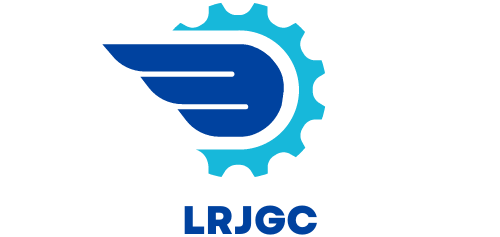In an ever-evolving world driven by technological advancements, engineering ethics stand at the forefront of critical discussions. Recent news highlights the importance of ethical considerations in engineering practices, as professionals face dilemmas that impact public safety, environmental sustainability, and societal well-being.
Engineering Ethics News
 Engineer responsibility has gained attention with new guidelines on ethical AI. The IEEE released a comprehensive framework to ensure AI technologies prioritize human rights.
Engineer responsibility has gained attention with new guidelines on ethical AI. The IEEE released a comprehensive framework to ensure AI technologies prioritize human rights.
Cases of data breach in the tech industry have highlighted the need for robust ethical standards. Notably, in early 2023, several financial institutions faced scrutiny after a major cybersecurity incident exposed millions of records. This event underscored the importance of integrating ethics in cybersecurity protocols.
Case Studies Highlighting Ethical Challenges
Recent news highlights ethical challenges in engineering, indicating the importance of adhering to ethical standards.
Environmental Impact Considerations
 The Volkswagen emissions scandal exemplifies environmental ethics. In 2015, Volkswagen was found installing software that manipulated emission tests in about 11 million diesel vehicles. This deception led to increased pollution and significant public backlash. Engineers implicated in the scandal faced legal repercussions, highlighting the need for transparency and honesty in environmentally impactful engineering practices. Companies must consider profound environmental consequences when making engineering decisions to maintain public trust and legal compliance.
The Volkswagen emissions scandal exemplifies environmental ethics. In 2015, Volkswagen was found installing software that manipulated emission tests in about 11 million diesel vehicles. This deception led to increased pollution and significant public backlash. Engineers implicated in the scandal faced legal repercussions, highlighting the need for transparency and honesty in environmentally impactful engineering practices. Companies must consider profound environmental consequences when making engineering decisions to maintain public trust and legal compliance.
Workplace Safety Incidents
The 2010 Deepwater Horizon oil spill underscores the critical importance of workplace safety. Poor decision-making and negligence led to an explosion, causing 11 worker deaths and massive environmental damage. Investigations revealed unethical practices, including ignoring safety protocols and prioritizing cost-cutting over safety. This incident emphasized that ensuring robust safety measures and ethical considerations can prevent disasters and protect employees and the environment. The case underlines the necessity of prioritizing safety in engineering practices, mandating strict adherence to safety regulations.
Key Legislation and Regulations
Engineering ethics are profoundly influenced by national and international regulations. These laws ensure engineers uphold standards that prioritize public safety, environmental sustainability, and societal well-being.
National Policies
 Countries adopt various national policies to address engineering ethics. In the United States, the National Society of Professional Engineers (NSPE) Code of Ethics serves as a foundational document. It mandates that engineers hold paramount the safety, health, and welfare of the public. Recently, the Federal Trade Commission (FTC) has focused on regulating data privacy in technology sectors due to increasing cybersecurity threats. In the field of autonomous vehicles, the Department of Transportation (DOT) has introduced guidelines requiring stringent safety assessments to be conducted before their widespread deployment.
Countries adopt various national policies to address engineering ethics. In the United States, the National Society of Professional Engineers (NSPE) Code of Ethics serves as a foundational document. It mandates that engineers hold paramount the safety, health, and welfare of the public. Recently, the Federal Trade Commission (FTC) has focused on regulating data privacy in technology sectors due to increasing cybersecurity threats. In the field of autonomous vehicles, the Department of Transportation (DOT) has introduced guidelines requiring stringent safety assessments to be conducted before their widespread deployment.
International Standards
International standards play a crucial role in harmonizing engineering practices worldwide. The International Organization for Standardization (ISO) provides comprehensive standards across industries. ISO 9001, for example, sets criteria for quality management systems, emphasizing continual improvement and customer satisfaction. The Institute of Electrical and Electronics Engineers (IEEE) has also established global guidelines for ethical AI deployment, promoting transparency and accountability in algorithmic decision-making.
How to Stay Informed
Staying informed about engineering ethics news requires continuous effort and the right resources. Here are some effective methods to keep updated:
-
Subscribe to Industry Publications: Journals like IEEE Spectrum and Engineering Ethics update regularly with key insights and latest ethical guidelines.
-
Follow Relevant Organizations: Monitoring updates from the National Society of Professional Engineers (NSPE), IEEE, and ISO ensures awareness of new standards and regulations.
-
Join Professional Networks: Engaging with platforms like LinkedIn groups and online forums connects professionals with recent case studies and discussions.
-
Attend Conferences and Webinars: Events like the Global Ethics Summit feature expert speakers discussing emerging ethical challenges and best practices.
-
Set News Alerts: Using tools like Google Alerts for terms like “engineering ethics” can provide daily updates on related developments.
These strategies help professionals stay updated on evolving engineering ethics, ensuring adherence to best practices.
Engineering Ethics Reporting
Engineering ethics remains a critical aspect of the profession, especially as technology continues to evolve rapidly. Engineers face complex ethical dilemmas that require careful consideration of public safety, environmental sustainability, and societal well-being. Recent news highlights the ongoing challenges and the importance of adhering to robust ethical standards.
Staying informed with engineering ethics news is essential for responsible practice and maintaining public trust. This commitment to ethical decision-making not only enhances career prospects but also fosters innovation that benefits society as a whole.

